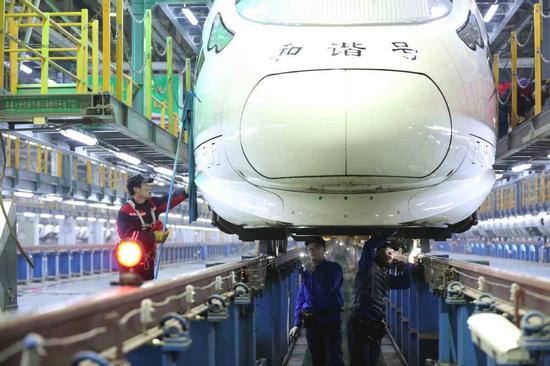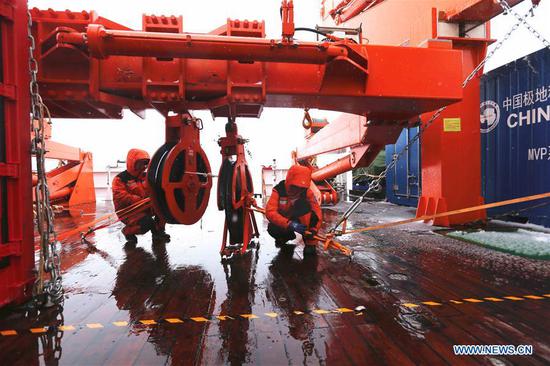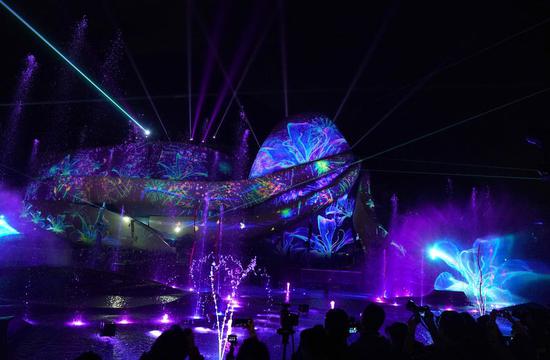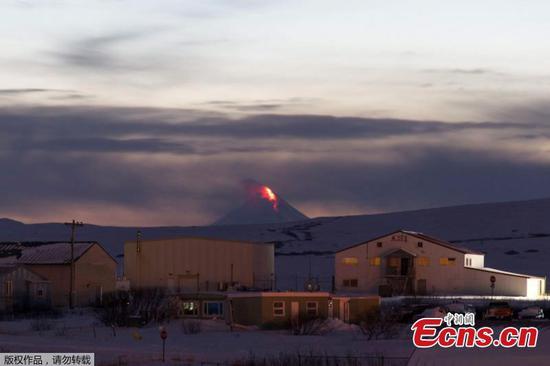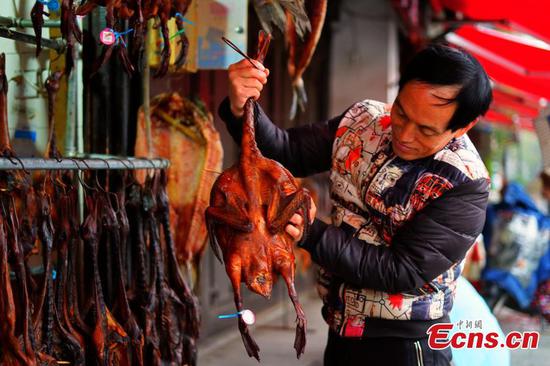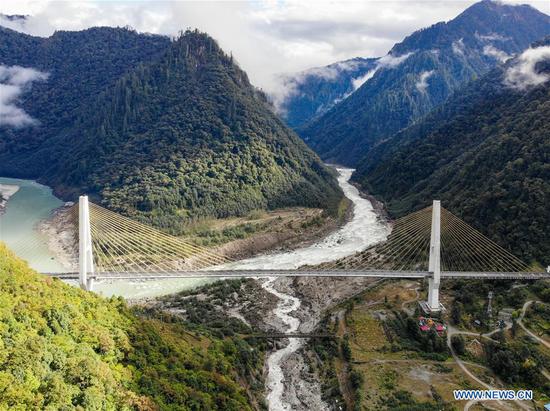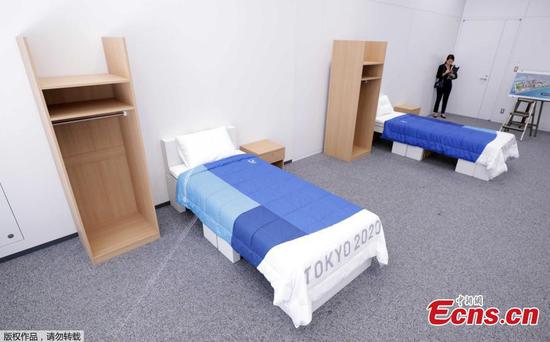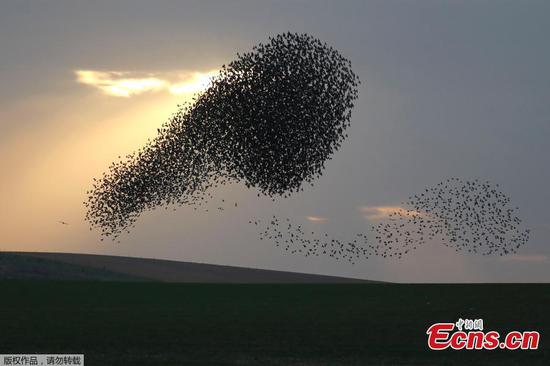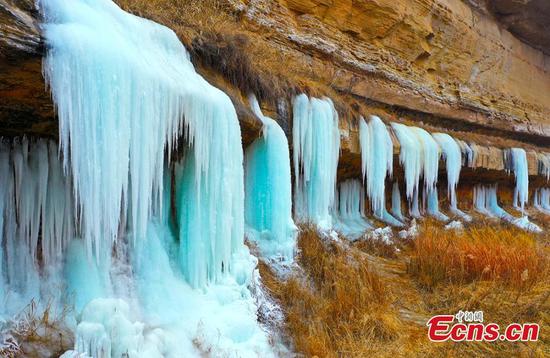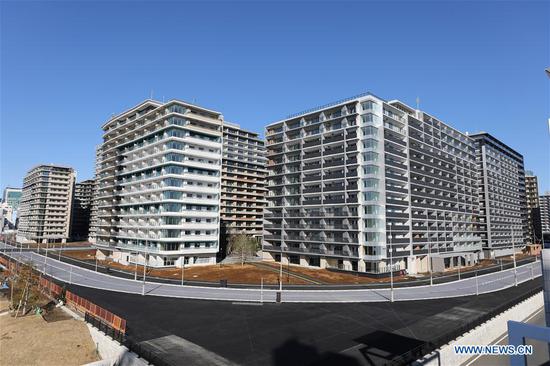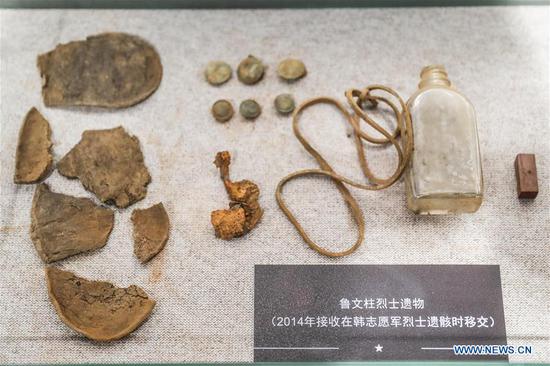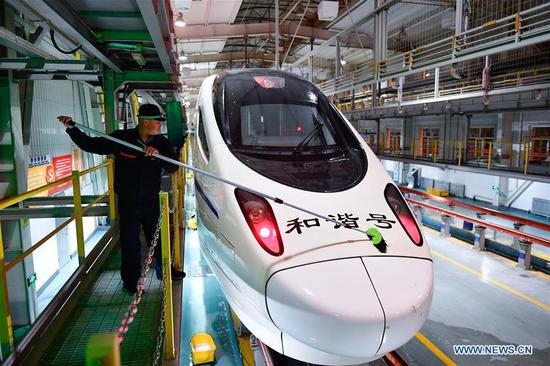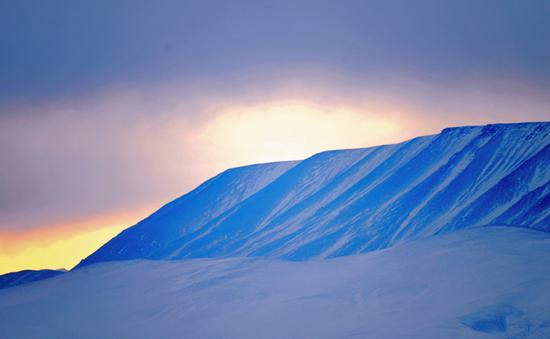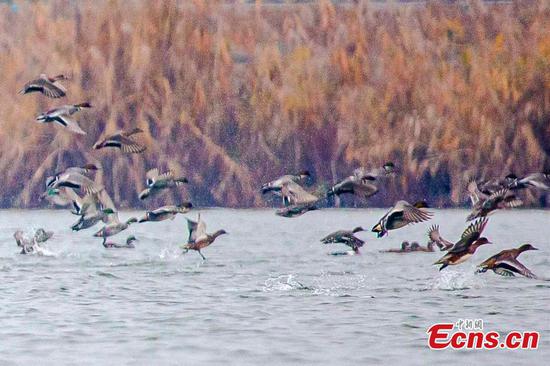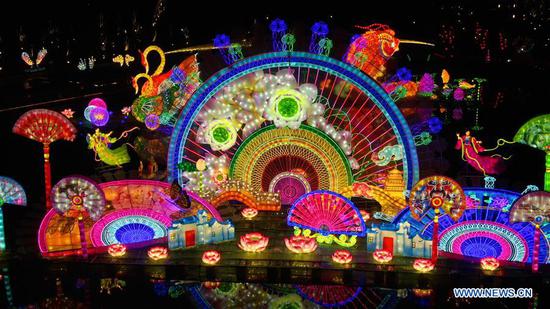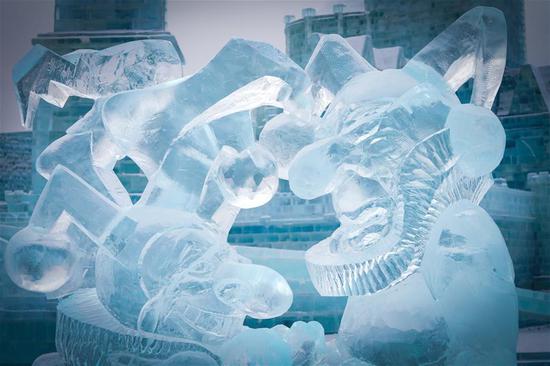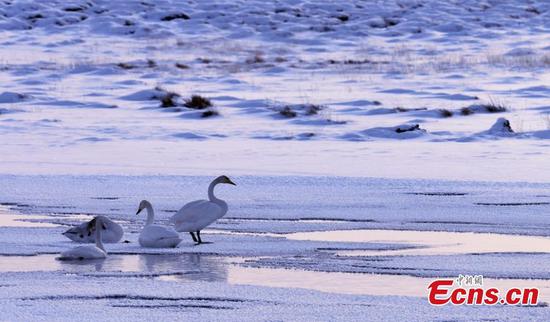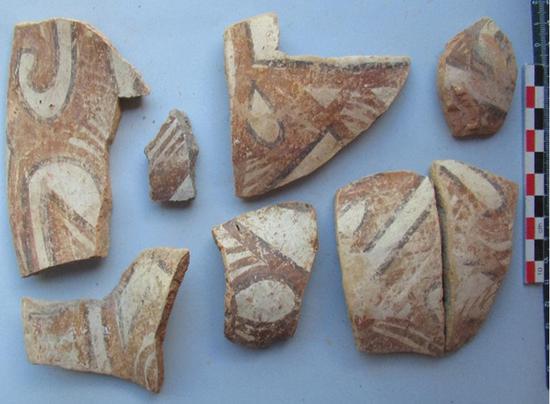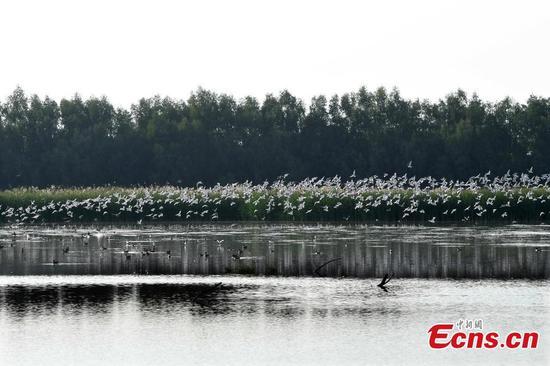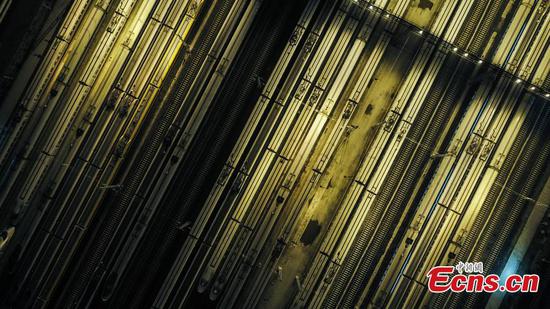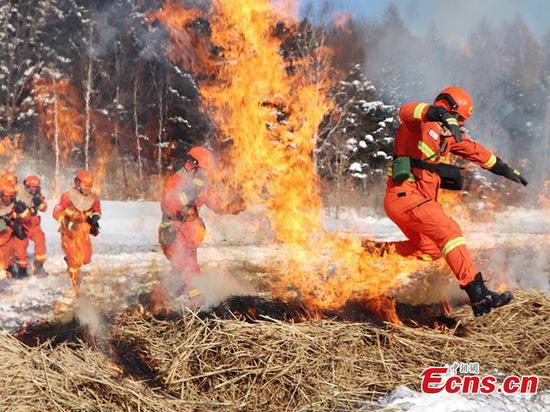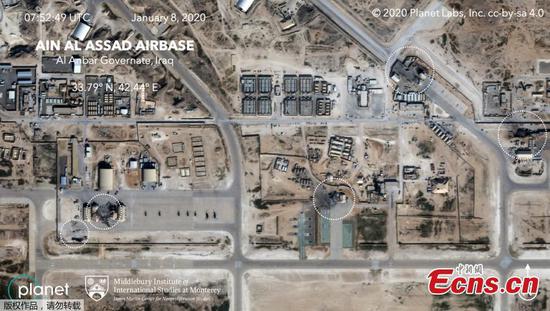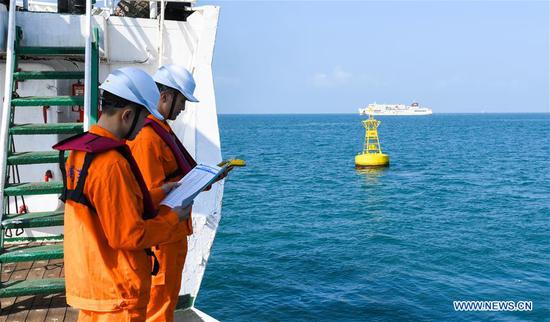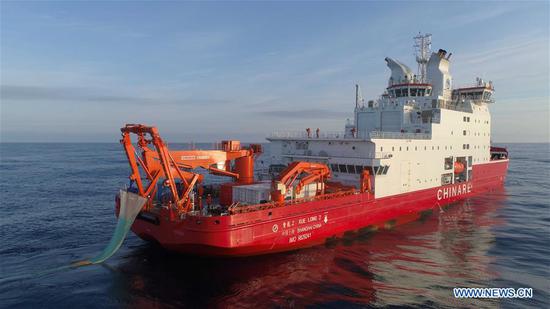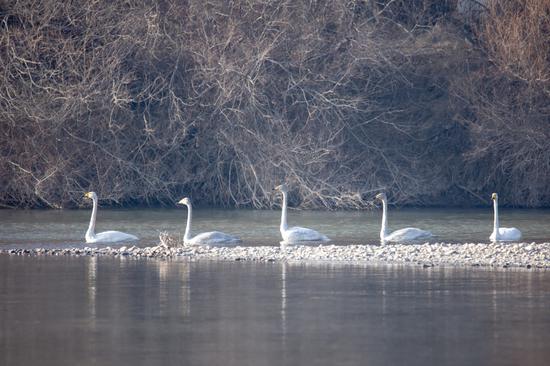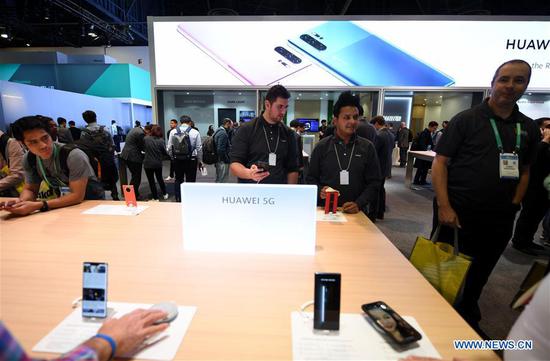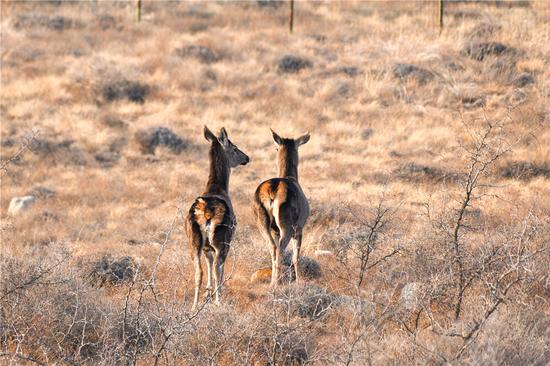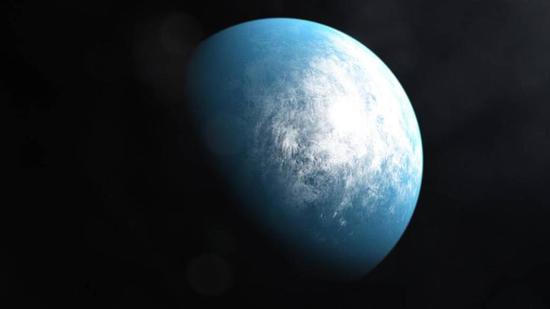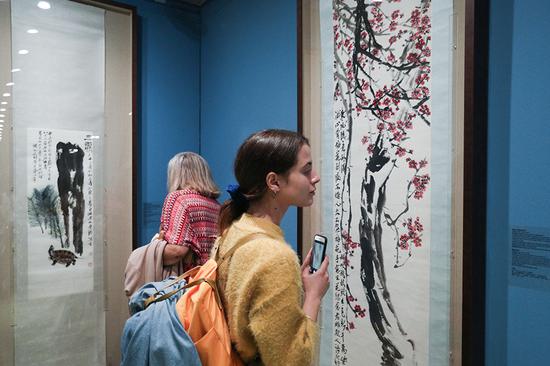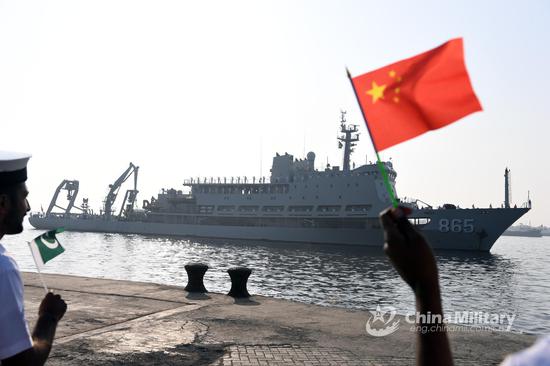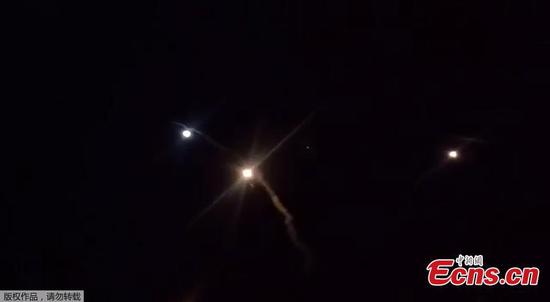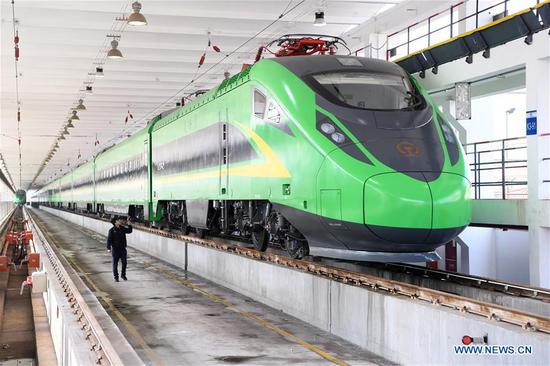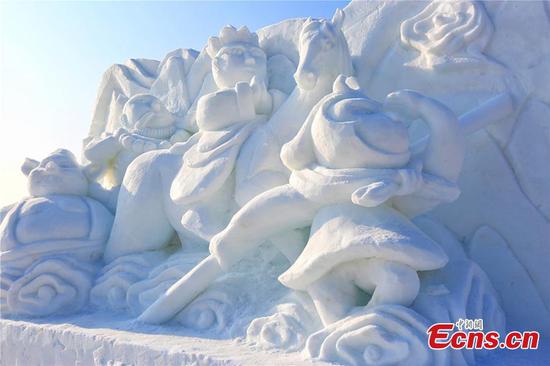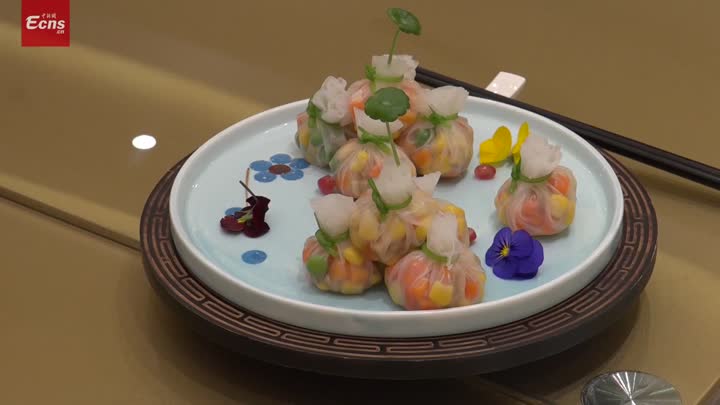President Xi Jinping presented China's top science award to Huang Xuhua and Zeng Qingcun on Friday for their outstanding contributions to scientific and technological innovation.
Xi, also general secretary of the Communist Party of China (CPC) Central Committee and chairman of the Central Military Commission, granted award medals and certificates to them at an annual ceremony held in Beijing to honor distinguished scientists, engineers and research achievements.
Xi shook hands with them and expressed congratulations.
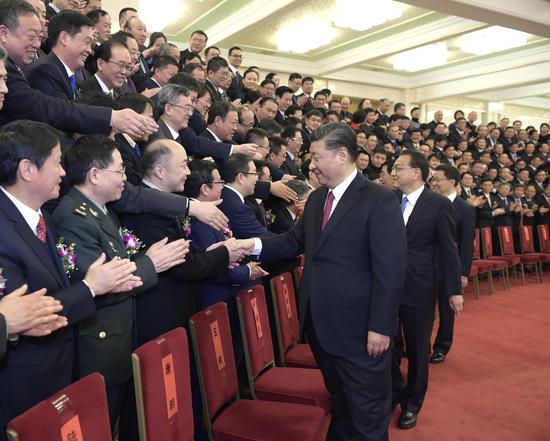
Chinese President Xi Jinping and other leaders, including Li Keqiang, Wang Huning, and Han Zheng, all members of the Standing Committee of the Political Bureau of the CPC Central Committee, meet with representatives of the award winners before an annual ceremony to honor distinguished scientists, engineers and research achievements at the Great Hall of the People in Beijing, capital of China, Jan. 10, 2020. (Xinhua/Li Xueren)
Other leaders, including Li Keqiang, Wang Huning and Han Zheng, were also present.
Huang Xuhua, an academician of the Chinese Academy of Engineering, is the chief designer of the country's first-generation nuclear submarines.
Born in Guangdong Province in 1926, Huang later joined a research institute of the former China Shipbuilding Industry Corporation and has been engaged in the research and development of nuclear submarines for about 30 years. He won the Medal of the Republic in 2019 for his outstanding contributions to the nation.
"Nuclear submarines are a lifetime aspiration for me, and I have no regrets," Huang said.
Zeng Qingcun, 85, is a famous meteorologist from the Institute of Atmospheric Physics under the Chinese Academy of Sciences (CAS).
His theory of numerical weather prediction solved the problems of timeliness and stability in calculating multi-scale weather change processes and is the basis of the global numerical weather prediction technology.
Zeng learned to do farm work and was aware of the difficulty in weather prediction when he was young. In college years, he was impressed by a severe frost that froze 40 percent of the wheat in central China's Henan Province. "If we can predict the weather in advance and take precautions, we can certainly reduce losses," he recalled.
Zeng's visionary study on global climate change has brought him a host of accolades and international acclaim, including the world's top prize for meteorological work.
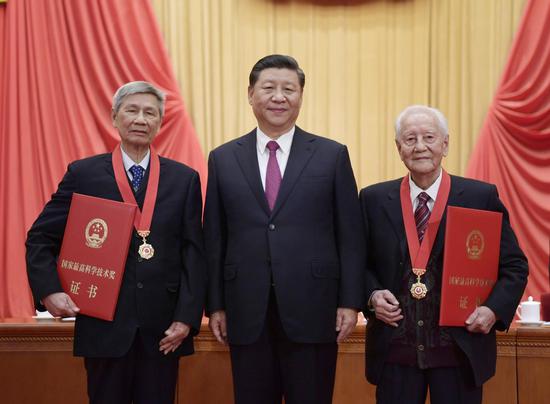
Xi presents China's top science award to Huang Xuhua (R) and Zeng Qingcun (L) during the ceremony. (Xinhua/Li Xueren)
Friday's ceremony also honored 296 projects, with 46 winning the State Natural Science Award, 65 the State Technological Invention Award, and 185 the State Scientific and Technological Progress Award.
Ten foreign experts won the International Science and Technology Cooperation Award.









